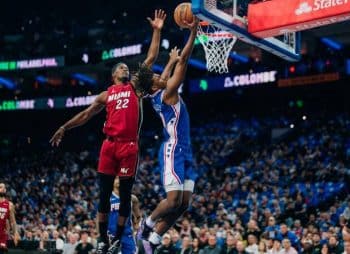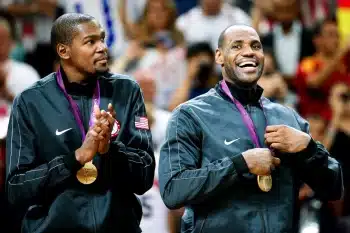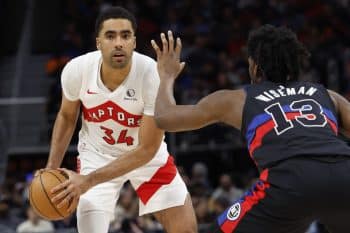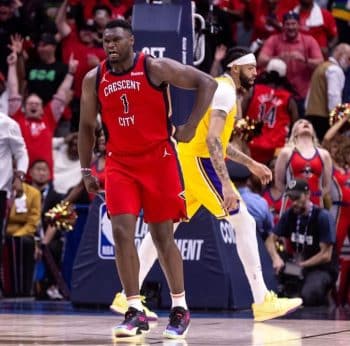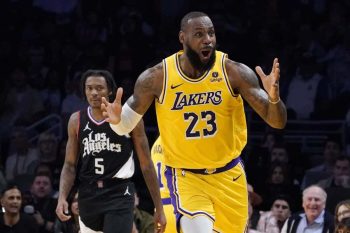NBA
Fixing the Charlotte Hornets

The Charlotte Hornets are a team searching for answers. The Hornets came into the season following a relatively successful 2015-16 campaign in which they went 48-34 and made the Eastern Conference Playoffs. Making the playoffs was a notable accomplishment for a team that had losing records in four out of the last six seasons going to back to the 2010-11 campaign.
The Hornets came into this season hoping that with continuing focus on defense and hustle, coupled with some offseason retooling, they would again make the playoffs. Unfortunately, things have not worked out quite so well as the Hornets are currently 30-39 and have little hope of making the postseason.
Understanding and embracing the following ideas may help the Hornets move forward after this disappointing season.
Accept the Season is Lost and Prioritize the Future
The Hornets went into a critical matchup with the Chicago Bulls on March 13. The Bulls had just lost five straight games and were struggling mightily. The Hornets needed to score a win to keep their own playoff hopes alive. However, the team suffered an unfortunate setback when starting small forward Nicolas Batum sat out due to severe migraines. Reserve forward Jeremy Lamb stepped up against the Bulls with a career-high 26 points but the Hornets still went on to lose.
Again without Batum, the team lost in a lackluster effort against the Indiana Pacers on March 15. The back-to-back defeats effectively ended any realistic hope of making the playoffs for a second straight year, a feat not achieved since before the inception of the Charlotte Bobcats, which came into existence in 2004. Now that the playoffs are effectively out of sight, the team should look toward the draft and offseason.
The Hornets hold both their first and second-round picks in the upcoming draft. They possess the 10th worst record in the league and only have a 3.6 percent chance at a top-three pick and a .8 percent chance of landing the No.1 pick. With 14 games remaining, they have three fewer losses than the New York Knicks and if they lose enough games, the Hornets could move up a few spots in the projected draft order. If, for example, they were to overtake the Knicks, the Hornets would have a 21.5 percent chance at a top-three pick and a 6.3 percent chance at the top pick.
With a talented draft class and the potential to improve their odds of landing a top pick, the Hornets should consider firing up the tank and resting their starters and veterans. This would allow younger players and prospects to showcase their long-term potential and gain experience, in addition to working towards improving their chances at a top draft pick. This would be beneficial for young prospects such as power forward Johnny O’Bryant III, who was recently signed for the remainder of the season and point guard Briante Weber, who recently signed a two-year deal with the Hornets, just before his second ten-day contract was set to expire. Developing young talent and having a better chance in the draft should be the goal at this point.
Bolster the Bench and Be Overly Cautious with Injuries
While scoring a high draft prospect helps in the long term, it’s unrealistic to expect almost any rookie to contribute meaningfully to a team in his first year. Where the Hornets are in need of serious help is with their bench. Of the players that played the majority of the season, only forward Cody Zeller and All-Star guard Kemba Walker sport a decent net rating, +4.3 and +2.5 respectively.
So far, only Lamb, 9.7 points per game on 45.1 percent shooting and offseason addition Marco Belinelli, 10.3 points on 42.3 percent overall shooting and 35.7 percent three-point shooting, have provided consistent bench production this season. The addition of younger players with potential, such as O’Bryant III and Weber, could help improve this situation if either takes a step forward in their respective games.
Compounding the bench productivity issue is injuries, which have forced bench players to move into the starting lineup and has left the bench even more depleted. For example, Zeller, who started 44 of 48 games, has missed time due to injuries. Trade acquisition power forward Miles Plumlee has only played five games so far for Charlotte due to a calf strain and even big man Frank Kaminsky III recent recently missed time with a shoulder injury.
All of the above has left the big man rotation in Charlotte in disarray, contributing to the lack of bench production and the disappointing results so far this season. While injuries are mostly random and cannot be prevented in most situations, Charlotte should look to add players with track records of being durable to guard against having to dig deep into their roster or look for help from players with little NBA experience. Additionally, they should be overly cautious with treating injuries to avoid recurrence and leaving players vulnerable to suffering other setbacks.
Address the Team’s Defensive Issues in Late Game Situations
The Hornets have struggled mightily in late game situations this season. In fact, this may be the single biggest reason why Charlotte has had such a disappointing season.
Per NBA.com, the team is 17-26 in games decided with a point differential of five points or less and were outscored by 10.9 pointers per 100 possessions in these clutch situations. Simply put, the team loses close games at an alarming rate.
The biggest problem is that the Hornets’ defense repeatedly falls apart at the end of close games. In clutch situations, the Hornets are giving up 124.4 points per 100 possessions, which is the second-worst rate in the NBA this season (placing them ahead of only the Los Angeles Lakers). Systematically, the Hornets have failed to make the right rotations, close out on three-point shooters and force opponents into tough shots. Usually, this sort of futility in the clutch is aberrant or can stem from simply having bad luck, as was the case with the Minnesota Timberwolves a few years ago. However, the Hornets’ lack of success in the clutch has been a consistent issue and it stems mostly from a shaky closing defense. This is something Coach Clifford will have to address heading into next season.
The Hornets could also look to adding a player with a track record of hitting clutch shots. Attracting free agents in small markets is not the easiest task, but perhaps taking a risk on a player like forward Rudy Gay, who suffered a season-ending Achilles tear this past season would be worth the risk. In 28 games this year, Gay had a positive 2.8 net rating in the fourth quarter of games while shooting 45.6 percent overall and 42.9 percent on three-point attempts. The Hornets shouldn’t pursue a player like Gay simply because of last season’s clutch numbers, but if he shows signs of making a full recovery and fits in the team’s plans, he could in theory help with these late game issues.
Unfortunately, landing a player like Gay, even with his Achilles injury in mind, will require the Hornets to clean up their cap situation a bit and will also require that free agent to take a discount. This would be a hard sell considering the team isn’t exactly one player away from being a true contender.
Develop a Long-Term Solution to Address the Cap Situation
To put it bluntly, Charlotte’s cap situation is a nightmare, as is readily apparent when looking at Basketball Insiders’ salary data.
The Hornets have some tough choices to make and they need to decide whether they want to clear the ledger or simply make cutbacks where possible. Charlotte could choose not to exercise options on a few players, the key being a team option on career back-up guard Ramon Session’s contract. The league is full of young point guard talent and the team is better off saving nearly $6.3 million owed to Sessions, who would be going into his 10th year and hasn’t lived up to expectations in recent seasons.
The team can look to teams with cap flexibility who are looking for depth in a trade or who might be willing to take on additional burdensome salaries in exchange for a draft pick or two. Trading away Miles Plumlee, who has only played five games and is the team’s third big man, would save an additional $12.5 million annually. Additionally, trading away Lamb (owed $7 million in 2017) or Belinelli (owed $6.6 million in 2017), who they also just acquired, would help relieve their cap situation somewhat.
Charlotte will need to lock in a long term plan to ultimately determine how to best address their cap situation. Offloading salary is great if you have a plan to take advantage of that newly generated flexibility. But if their approach is to simply clear the deck without a well-reasoned plan in place to move forward successfully, it won’t make any real positive change for Charlotte.
Re-embrace the Defense-First Philosophy
Head Coach Steve Clifford has espoused the need for effort and intensity for years. He recently voiced his frustrations with the team’s defensive effort this season.
“We play with no discipline defensively,” Clifford said after the Hornets’ tough loss to Chicago. “We don’t. It’s been the story too many times this year. This is on me now. I have to do a better job of getting them to understand what we have to do.”
A major goal for next season should be to embrace, or re-embrace, the defensive philosophy that has been the hallmark of the Clifford era in Charlotte. The Hornets still rank in the top 10 in defensive rating this season, but last year they surrendered just 101.8 points per 100 possessions, whereas this season they are giving up 105 points per 100. While the Hornets have been pretty solid overall defensively, this team needs to improve its defensive performance since this is a more realistic path to improvement as opposed to improving significantly on offense.
Coach Clifford, venting his frustration with the whole season, spoke recently about his inability to coach the current team through its struggles.
“You know everyone talks about connecting, right? I’m supposed to be good at connecting,” Clifford said. “Well, I haven’t connected with this team, OK. [Because] I know what the problems are. [The players] know what the problems are, see. But the problems have not been fixed. And that’s coaching, that’s my job.”
The Hornets face a tough road ahead. Their cap situation limits their ability to make significant upgrades in the short term and the players they have don’t collectively have a ton of upside. However, this team has the net rating of a team that should have been in striking distance of the postseason but fell short in large part because of its terrible clutch-time defense. Fortunately, Steve Clifford has proven himself to be a talented defensive coach and should find some solutions during the upcoming offseason.
